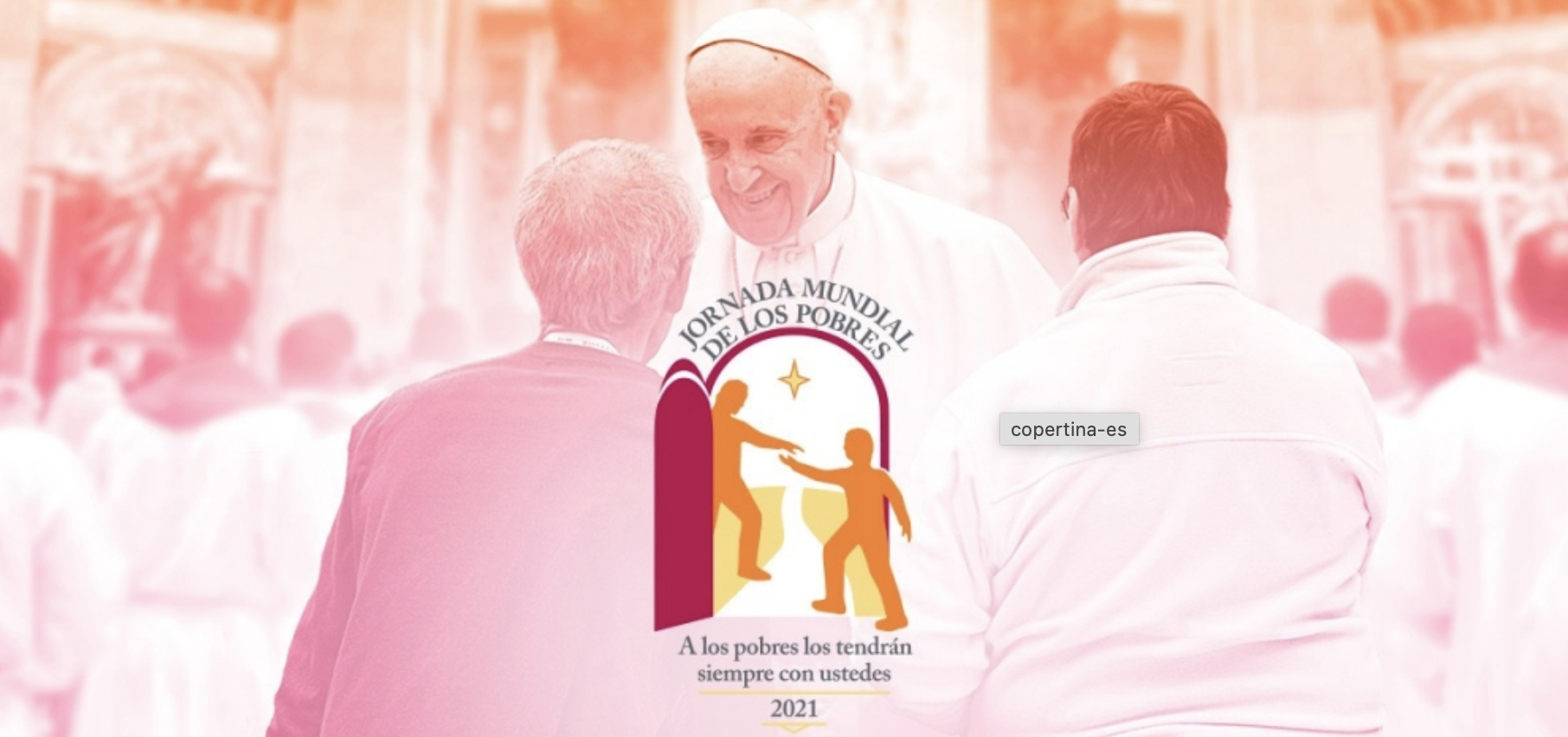“Do justice to the orphan and the widow, love the immigrant by providing him with clothes and clothing. Love the immigrant (stranger), because you were an immigrant in Egypt.” Dt 10,18-19
In the chronicals of the people of Israel (the Pentateuch), the commandment to care for, feed and defend the most vulnerable groups in the ancient east was embodied. These groups were orphans, widows and foreigners (migrants). The people of Israel recall that God “loves the migrant,” and also makes us see the fully human meaning that must be had before the needy: do to the other what you want them to do to you; In God’s command, “love the migrant, because you were a migrant in Egypt.”
In the practice of Jesus, we find the same Spirit that moved him to liberate and heal the excluded and most affected groups of Jewish society. That is why the Gospel of Luke recreated the moment when Jesus announced his mission (Lk 4,16-21). All the practice of Jesus was impregnated with compassion and mercy, which makes justice and liberation possible, that is why the impoverished people sought him out, because they felt welcomed (Mt 4,24-25; Jn 6,1-15) .
It is the small and defenseless who show the face of Jesus: “Whoever welcomes a child like this in my name welcomes me; and whoever welcomes me welcomes not me, but the one who sent me.” (Mk 9.37). And even more radical and transcendent, was affirming that we do act with compassion with vulnerable human groups, we are doing it to Jesus himself, among those are the migrants: “Because I was hungry, and you gave me food; I was thirsty, and I was you gave drink; I was a stranger, and you welcomed me; “ Mt 25,35. Let us increase sensitivity and faith, to be able to see the face of Christ in the migrant.

Acting compassionately is a human quality, specified in the action to give care, protection, and attention to the most needy that we meet along the way. This is achieved by listening to the cries of reality (Mk 10,46-52).
Only the compassion that came out of Jesus’ humanity led him to act in a liberating way with women, confronting the machista culture and the religious patriarchy of the men’s groups that dominated the Jewish religion. It also led Jesus to overcome xenophobia, (Mt 15,21-28; Jn 8,1). Jesus approached and acted: “When the Lord saw her, he had compassion on her, and said, “Do not cry” (Lk 7,13). Compassion leads us to act with the freedom of the sons and daughters of God.
The Spanish philosopher Adela Cortina managed to coin, after several years of epistemological approaches and systematization of reality, the term in the dictionary of the Royal Spanish Academy, “Aporophobia”: phobia of poor or disadvantaged people (2017). The journalist Milagros Pérez Oliva, expressed this humanistic reach in the Spanish-speaking community, saying, “for something to exist in the collective conscience, you have to be able to name it. Naming what happens and you don’t see or don’t want to see is what the philosopher Adela Cortina has done with a reality that is there, but we prefer to ignore: fear, aversion and rejection of the poor. “[1]
What Milagro Pérez is affirming is what Jesus said about showing mercy to the fallen on the road, in the parable “of the good Samaritan” (Lk 10,28-38). You have to “see” reality with compassion that humanizes. In addition to seeing and analyzing reality with compassion, it is necessary to overcome the “fear” that often leads to rejecting the migrant, acting violently towards this vulnerable group.
This situation of acting violently against the poor and vulnerable migrant was recently experienced in Iquique, about 1,750 kilometers from Santiago, the Chilean capital (9-25-2021). A demonstration was held against Venezuelan irregular migrants and some Haitians who were residing in tents in a public park in the town. The most inhuman thing that happened was the symbolic gesture of burning the mats, backpacks and toys of the migrant families. In a video that went viral on social networks, these Chilean protesters came out expressing contempt, hatred and rejection of the migrant who is in their lands.[2] This attitude of considering the migrant to be “delinquent, dirty and despicable” is an act of “aporophobia,” a prejudice that disqualifies the migrant as a human.
Pope Francis, in the encyclical of the “Frateli Tutti” (2020), on fraternity and social friendship, addressing the situation of migration, emphasizes that receiving and welcoming them is an act that fulfills humanity itself (FT 85). He also expressed the following: “I especially ask young people not to fall into the networks of those who want confrontations with oher young people who come to their countries, regarding them as dangerous beings and as if they do not have the same inalienable dignity of every human being” (FT 133). The Pope knows that the act of considering irregular and poor migrants as disposable dehumanizes us as a society. It is necessary to change the mentality and outlook towards the migrant, and discover the value and benefits that the encounter of cultures and peoples brings (FT 133-136).
____________________________
[1] https://elpais.com/elpais/2018/01/03/opinion/1515000880_629504.html
[2] https://www.youtube.com/watch?v=1pj_ocilHzU
René Arturo Flores, OFM
RFM – Team El Salvador

